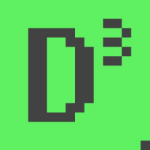Member in the Spotlight: D3 – Defesa dos Direitos Digitais
D3 is a volunteer-run association dedicated to the defense of fundamental rights in the digital context. Its focus is to ensure autonomy and freedom of choice; uphold privacy and free access to information, knowledge and culture; and defend digital rights as a reinforcement to the principles of a democratic society.
This is the 11th article of the series “EDRi member in the Spotlight” in which our members have the opportunity to present themselves and their work in depth.
Today we get to know more about our Portuguese member: D3 – Defesa dos Direitos Digitais, which has been part of the EDRi network as a member since 2020.
D3 – Defesa dos Direitos Digitais Q&A
1.Who are you and what is your organisation’s goal and mission?
We are a volunteer-run association dedicated to the defense of fundamental rights in the digital context. Our focus is to ensure autonomy and freedom of choice; uphold privacy and free access to information, knowledge and culture; and defend digital rights as a reinforcement to the principles of a democratic society.
2. How did it all begin, and how did your organisation develop its work?
For many years there has been a gap within Portuguese civil society: there was no entity dedicated to digital rights issues. Some people would fight for them in their individual capacity, and a few organisations would cover them when absolutely needed, but often going beyond their original scope of action by doing so (such as free software organizations).
Around 2016, some people got together and started to discuss how we could start such an organization. The objective was to coordinate the already existing civil society efforts in an organized and dedicated way, with a wide enough scope that would allow us to cover any issue within the field – not because we wanted to cover
everything but because we wanted the freedom to tackle any of them. It finally happened in March 2017, and we have been active since then.
3. The biggest opportunity created by advancements in information and communication technology is…
It can enable further universal access to many rights such as education, participation in democratic life, access to more information and data, tools for both on day to day life and to support the individuals and society in exceptional moments.
4. The biggest threat created by advancements in information and communication technology is…
Lack of oversight and disregard of the dangers associated with technology and its usage; excess of optimism about the capacity of technology to solve problems for both the individuals and the society; magical thinking that comes with the lack of understanding of technology and science in general.
5. Which are the biggest victories/successes/achievements of your organisation?
We managed to become the first divergent voice in matters where there used to be no entity representing the public interest. We brought new issues to the Portuguese public debate like data retention, copyright, net neutrality, electronic voting, public surveillance, and more. Our biggest achievement was having our data retention complaint to the Justice Ombudsman reach the Constitutional Court (the decision is still pending)
6. If your organisation could now change one thing in your country, what would that be?
Exclude non-policy influences from public policy decision making.
7. What is the biggest challenge your organisation is currently facing in your country?
Internally we face the usual issues related to the small scale of the country; for example, we could use more volunteers lending a hand.
Externally, right now it is impossible to escape the subject of COVID-19, which is making some people fall prey to questionable tech-solutionism promises which are inspired by practices of non-democratic countries.
8. How can one get in touch with you if they want to help as a volunteer, or donate to support your work?
If you speak Portuguese, you can find more information on our website, including how to volunteer and how to donate. An English-language smaller scale version is also in our plans.
Discover more about D£





